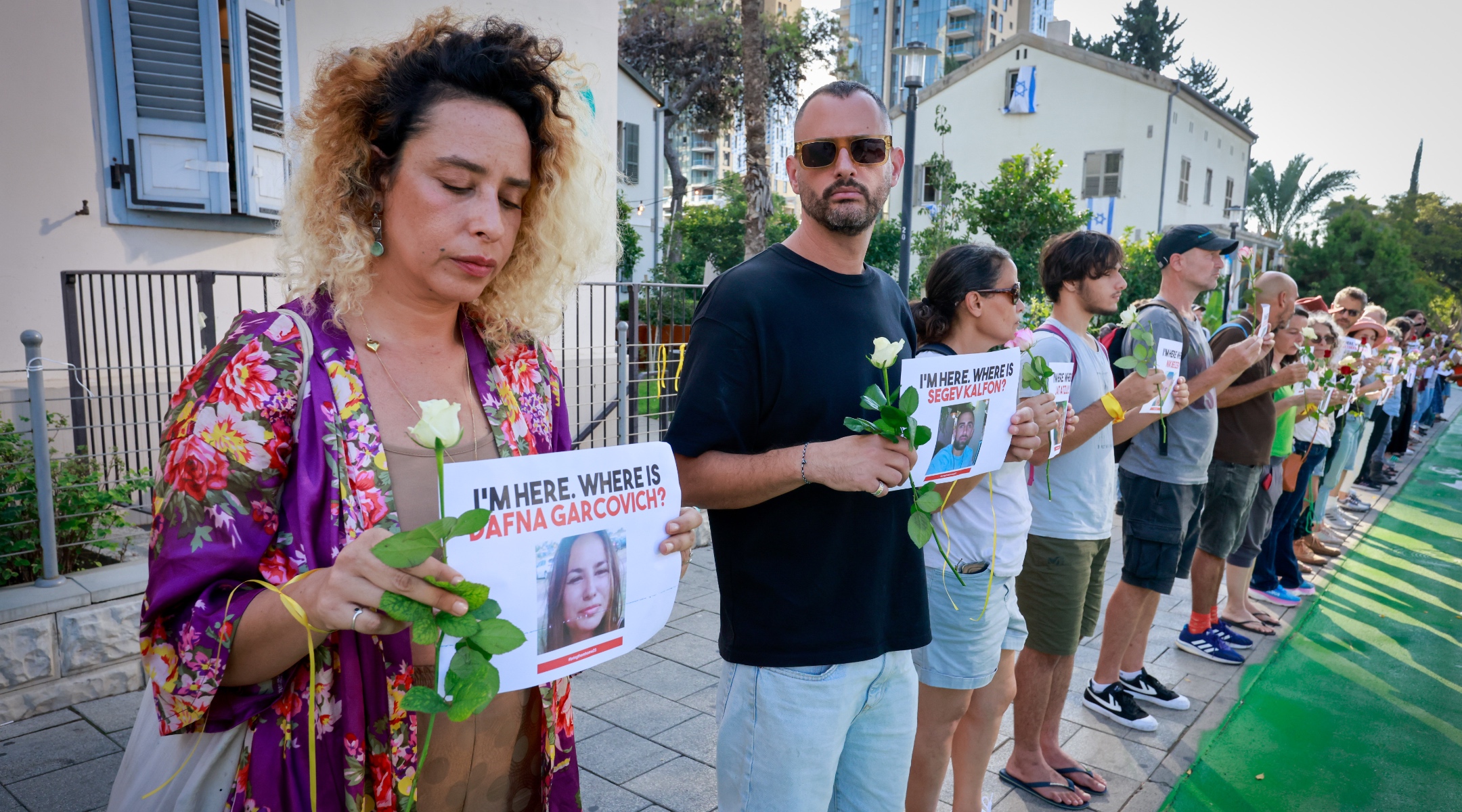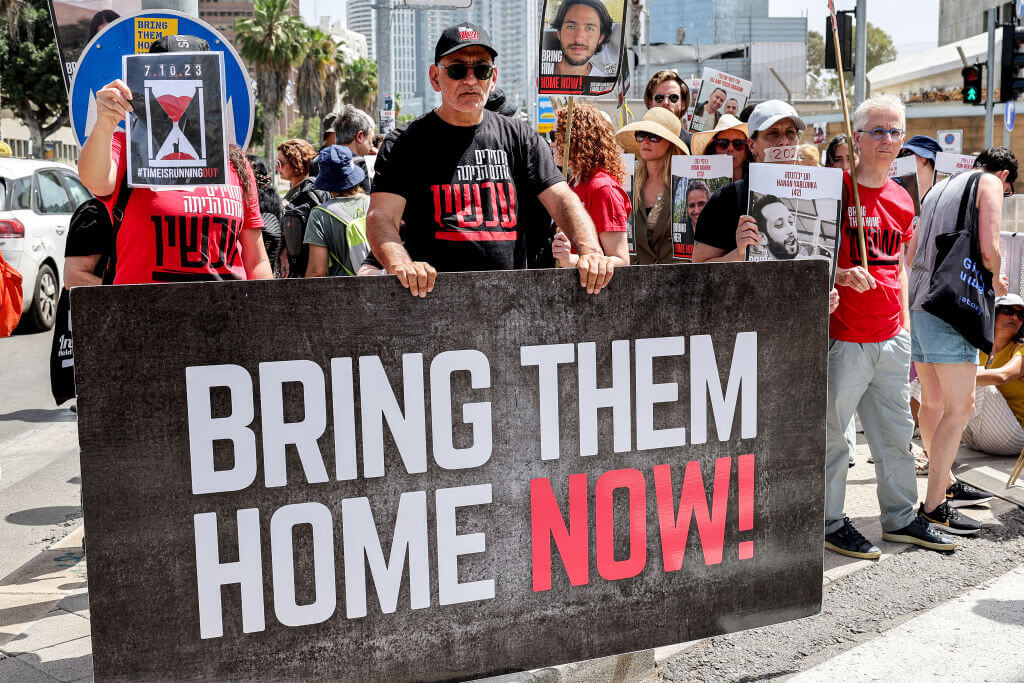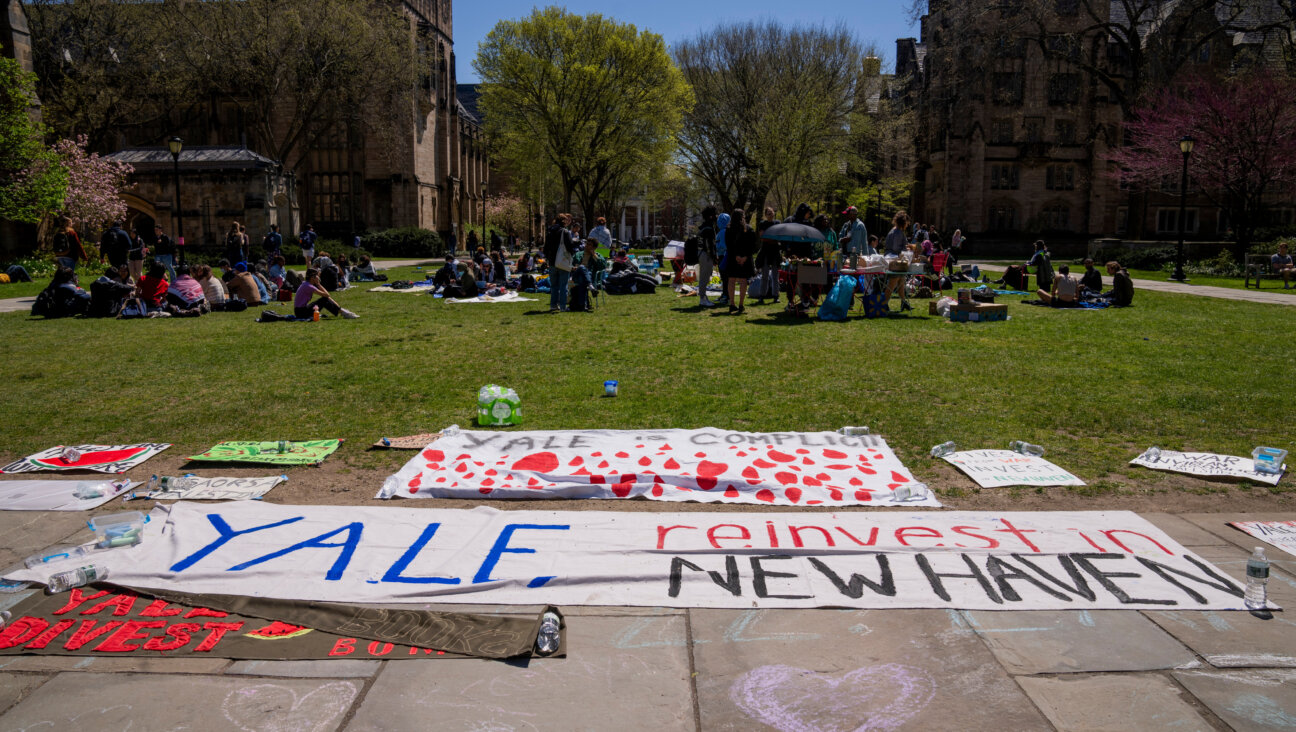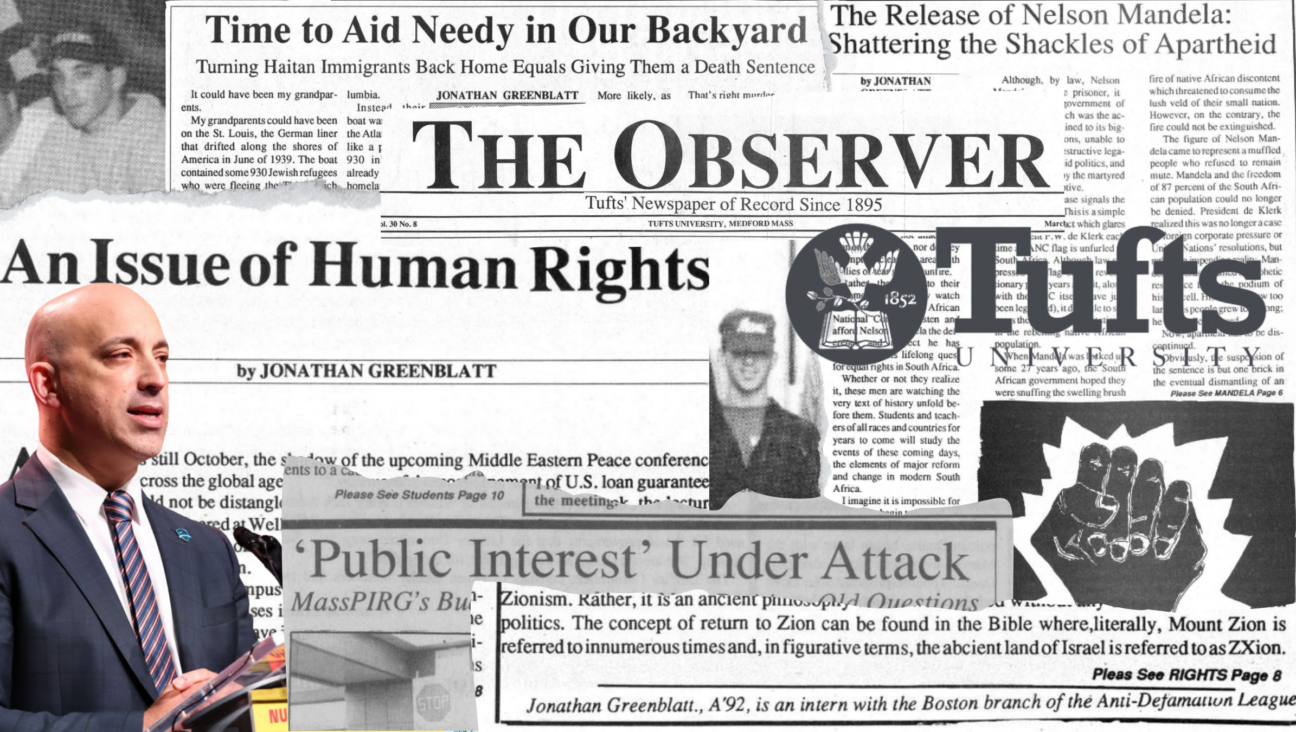American Jewish giving to Israel spikes as a ‘tangible’ way to express grief after Hamas attack

People call for the release of Israelis held hostage by Hamas militants in Gaza, outside the Ministry of Defense in Tel Aviv, Oct. 17, 2023. (Yossi Zamir/Flash90)
WASHINGTON (JTA) — For more than a week, Herbert Block’s phone has been buzzing nonstop with messages from people he doesn’t know who want to give him money.
He doesn’t mind the unsolicited callers, all of whom are asking the same thing: How can they donate to Israel right now?
“People from all parts of the country, people who say, ‘I tried to get on the website and I couldn’t figure it out,’ or, ‘I’m not good at technology, how do I make the donation?’” said Block, the executive director of the American Zionist Movement.
Block isn’t alone. Jewish officials say the level and intensity of incoming cash for Israel since Oct. 7, when Hamas invaded the country and killed and injured thousands, is unprecedented in their adult lifetimes.
On Tuesday, the Jewish Federations of North America announced that it had raised $388 million, just five days after setting an overall goal of $500 million. The JFNA money is mostly going to medical and psychological relief. Other groups, like the Friends of the IDF, are raising money to meet urgent military needs.
Julie Platt, JFNA’s chairwoman, said she remembered similar periods when she was a child and her parents were active in pro-Israel fundraising — during and after the 1967 Six-Day War and the 1973 Yom Kippur War. Then as now, American Jews feared for Israel’s survival and opened their pocketbooks in response.
“For me as an adult, I’ve never experienced a day like today,” Platt said in an interview.
“Since the Hamas attack it doesn’t feel like a trickle of support,” she said. “It feels like a flood.”
It’s not just the intensity of the giving but the amounts, said Gil Preuss, CEO of the Jewish Federation of Greater Washington. “People are giving 10, 25, 50,000 dollars,” he said.
Preuss said he was approaching a local total haul of $10 million as of Monday, an amount that was included in the $388 million that JFNA announced Tuesday.
While the sums raised now are a spike when compared to recent years, they are so far dwarfed by previous crises. In the week following Oct. 7, New York’s UJA-Federation raised $75 million. The week after the 1967 war, it raised the equivalent of $180 million in today’s dollars. (That $75 million, like the money raised by the Washington federation, is part of the total JFNA announced.)
But the current fundraising drive comes after years of fraught relations between Israel and American Jews, as well as longstanding anxiety over a growing subset of Jewish Americans who feel increasingly distant from Israel. This year, another subset of American Jews expressed their ties to Israel through sympathy with the hundreds of thousands of Israelis who protested Prime Minister Benjamin Netanyahu and his effort to weaken the courts.
Now, American Jews who weeks ago might not have paid attention to Israel, or even felt alienated from it, were turning up and opening their wallets, Preuss said.
“We had two couples, probably around the age of 40, convene their network of friends, some who had been involved with Federation, but most who weren’t involved and didn’t give previously to the federation,” he said, recalling an event that took place last Thursday, five days after the attack. “And that night, they raised a million dollars.”
Platt said that giving was the most immediate and convenient thing a Jew could do in the face of the helplessness they felt when confronted with images and accounts of Hamas terrorists murdering families in their homes and young adults at an outdoor party.
“You’re able to express your emotions in this way,” she said. “It’s the one very concrete and tangible thing that we can do. It’s a way for us to express our deep grief and fear and love for the people of Israel.”
One big difference from 1967 and 1973 is that U.S. Jews can now donate with relative ease directly to Israeli charities and to research a wide array of possible destinations for their financial support. That means the fundraising totals reported by JFNA are likely to reflect a smaller proportion of the total transfer of resources from the United States toward Israel this week.
Still, traditional fundraising venues, including synagogues and federations, were proving durable. And some of their appeals have been dramatic: The Forward reported that New York City’s Park Avenue Synagogue set a goal of $18 million; by Friday, six days after the war broke out, the synagogue had reached $16 million. Rabbi Elliott Cosgrove, citing the Jewish imperative to save a life, asked congregants to break their Sabbath observance and scan a QR code on their programs to reach the goal, and by Sunday, they were within striking distance.
Included in the $75 million UJA raised is $22,000 brought in by New York University students who came together to read psalms as they learned of the carnage and decided they needed to do something more tangible.
Block said his organization was edging close to $100,000 as of Wednesday — not a huge amount compared to the millions others are pulling in, but a significant sum for a group that focuses more on advocacy than fundraising. The money will go to the World Zionist Organization’s crisis response efforts.
The appeal, he said, is immediate gratification of the need to do something.
“Here’s something that I can do, you know, at my desk,” he said. “The uniqueness of this situation, it’s something that is unprecedented in every way.”
This article originally appeared on JTA.org.

I hope you appreciated this article. Before you go, I’d like to ask you to please support the Forward’s award-winning journalism this Passover.
In this age of misinformation, our work is needed like never before. We report on the news that matters most to American Jews, driven by truth, not ideology.
At a time when newsrooms are closing or cutting back, the Forward has removed its paywall. That means for the first time in our 126-year history, Forward journalism is free to everyone, everywhere. With an ongoing war, rising antisemitism, and a flood of disinformation that may affect the upcoming election, we believe that free and open access to Jewish journalism is imperative.
Readers like you make it all possible. Right now, we’re in the middle of our Passover Pledge Drive and we still need 300 people to step up and make a gift to sustain our trustworthy, independent journalism.
Make a gift of any size and become a Forward member today. You’ll support our mission to tell the American Jewish story fully and fairly.
— Rachel Fishman Feddersen, Publisher and CEO
Join our mission to tell the Jewish story fully and fairly.
Only 300 more gifts needed by April 30























